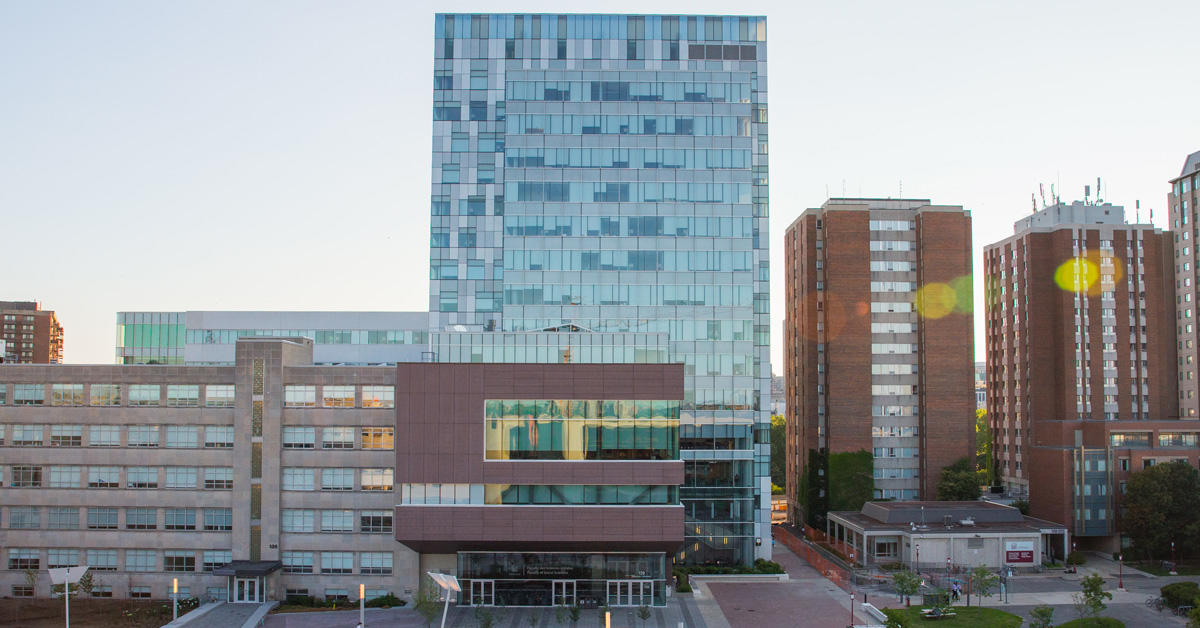
On March 20 we celebrate the International Day of La Francophonie. It’s a chance to reaffirm our deep connection to the French language, to its diverse cultures and to a French-speaking world of rich contrasts and shared destinies.
A message from Sanni Yaya, Vice-President International and Francophonie at the University of Ottawa
This year, the Mois de la Francophonie has served to celebrate the reach of the French language, with its nearly 300 million speakers worldwide, including 235 million daily speakers, and about 10.9 million French speakers in Canada. It has also served as a tribute to francophones and francophiles, united by one language.
Known and recognized for both its richness and attention to nuance and detail, the French language has always inspired artists, playwrights, poets, essayists, novelists and scientists. The Francophonie is also Mariama Bâ, Maryse Condé, George Sand, Marie Curie, Frantz Fanon, Amin Maalouf and millions of others, spread over 106 countries and territories. Today, it represents the ideal forum for dialogue, exchange, experimentation, resistance and dreams.
For over 50 years, the Francophonie has continued to grow and renew itself, as an exceptional laboratory of co-construction and a fertile breeding ground for new identities. It has helped to shape, little by little, a new way of seeing the world and to create a space for solidarity where the whole (which is yet to be defined) is more than the sum of its parts.
As in 2020, we find ourselves mobilized by the health crisis. But that should not make us lose sight of our responsibility to take on other emergencies, which include the linguistic insecurity francophones face every day, the homogenization of culture and identity and the need to open new horizons for our young francophones searching for meaning and opportunity, not to mention our need for international and intergenerational solidarity.
The Francophonie: Central to the University of Ottawa’s mission
The University of Ottawa has a duty to exercise our authoritative and be the bearer of our vision of the Francophonie, one whose construction is ongoing. We seek to be a stable, lasting francophone bastion, in Ontario, across the country and around the world.
As vice-president International and Francophonie, I would like to contribute to the emergence of a new French-speaking world, unique and secure, which is so necessary for the well-being and development of francophone communities here and elsewhere. This means, simply put, that tomorrow’s University of Ottawa will be more francophone and francophile. Among other things, teaching and research excellence will be achieved through an expansion of the resources and the place given to promoting the French influence within our ecosystem. I am convinced that our ability to consolidate our francophone identity will allow us to make French a valuable language in thinking of the world differently, strengthening our connections, developing bonds of solidarity and, above all, creating new knowledge.
More and more, we are reaffirming the need for alliances in our extended Ontario family. We have implemented a strategy of closer relations with many partners in the world of francophone postsecondary teaching in Ontario, for greater pooling of our resources. For example, we’re working with Dominican University College, the Université de Hearst, Laurentian University, Saint Paul University, York University and the Université de l’Ontario français to establish an inter-university consortium for French-language online teaching and learning. While this project does not completely solve the problem of access to French-language postsecondary education, it has the virtue of thrusting our francophone and bilingual institutions into a new era of joint development and promotion of more balanced spaces for exchange and sharing.
A forward-looking Francophonie
Beyond a list of good intentions regarding this francophone space, we have a moral obligation to not reduce the Francophonie to a mere celebration of relationships among communities having the French language in common. In my mind, the French language must always be seen as a means and never as an end in itself. The Francophonie is also the possibility of supporting peoples’ legitimate aspirations and an opportunity for openness to the world, to create and implement innovative projects with passionate partners in the French-speaking world, near and far, who, like us, wish to invest in the transfer of knowledge in French from all continents. For the University of Ottawa, this means embodying this meeting place, one of exchange and ideas, by remaining fresh and renewing our commitment to diversity, in keeping with the transatlantic migration that is profoundly shaping the francophone space. Our research centres and institutes, as well as our programs of study, are already playing this role. The Collège des chaires de recherche sur le monde francophone illustrates our commitment to sustaining and promoting research in health care, law, sociology, medicine, education and more, for francophones here and elsewhere.
The institutional projects and creative initiatives we will bring forth in the coming months will reflect the vitality and incalculable richness of our broad community. The University of Ottawa will be more attentive to francophones’ needs and concerns, to act as a genuine pathway of hope. We also aim to participate diligently in the Francophonie’s international forums and to ensure that this francophone space is truly a vast field of future opportunity. Alongside our partners, we will give new momentum to our desire for the promising scholarly, economic and cultural cooperation the Francophonie stands for by mobilizing University of Ottawa expertise through sectoral projects, mobility for international and Canadian students and for researchers, and increased enrolment in renewed French-language program offerings (the establishment of an undergraduate Doctor of Pharmacy program, the first offered in French outside Quebec, is a good example).
I invite you to join with me in celebrating the International Day of La Francophonie, and I thank you for your contributions to the growth and extension of the francophone edifice.
